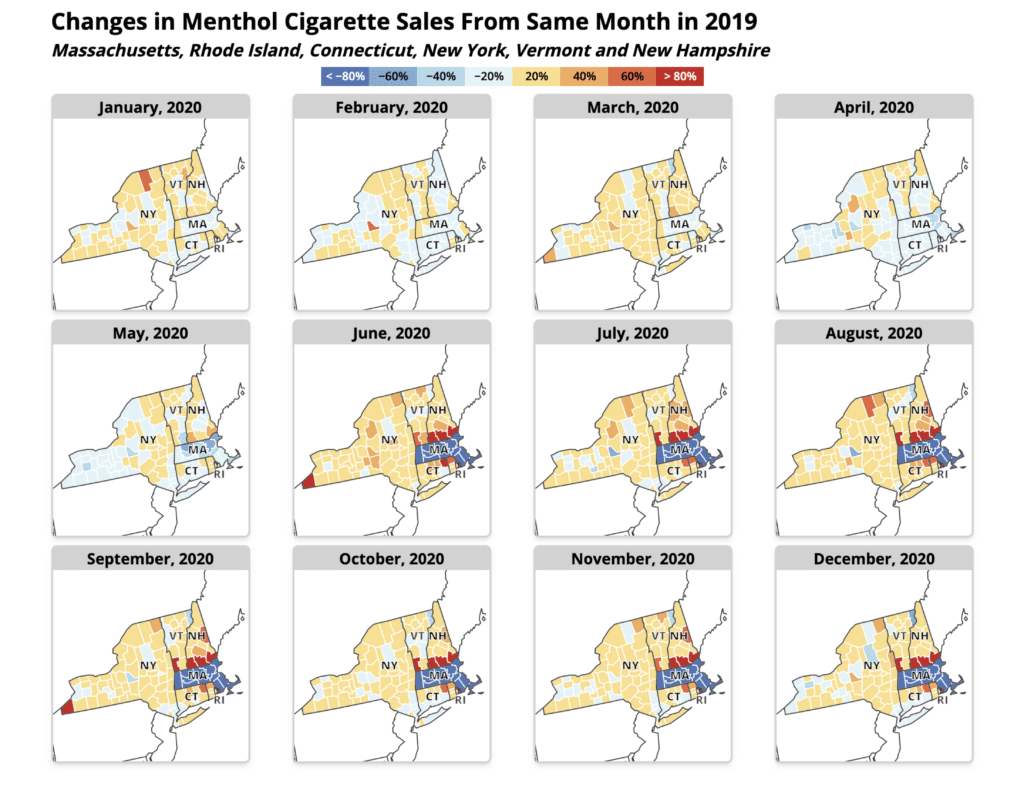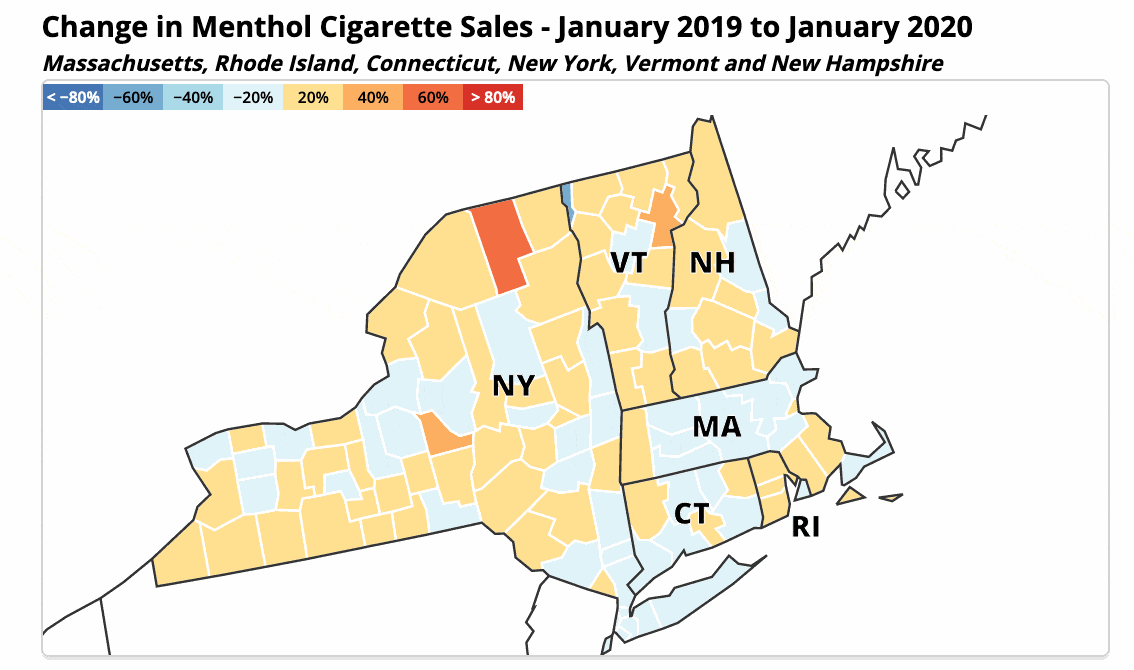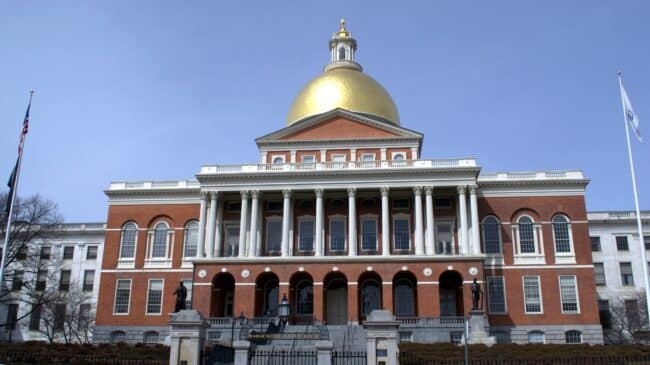With the Food and Drug Administration proposing a federal rule to ban the sale of menthol cigarettes across the country, policymakers should examine the consequences of similar legislation and whether the bans have achieved their public health goals. On June 1, 2020, Massachusetts became the first state in the United States to implement a comprehensive ban on the sale of flavored tobacco products, including menthol cigarettes.
The ban has served as a test for what other states and municipalities might expect if they enact similar prohibitions on flavored tobacco products. Although officials often promote tobacco control policies as ways to protect public health, the unintended consequences of menthol cigarette bans on total cigarette sales have puzzled many public health officials and raised important questions about the effectiveness of the prohibitions.
In my analysis of the comprehensive flavored tobacco ban implemented in Massachusetts, the data show that the prohibition of menthol cigarettes was followed by millions of additional cigarette sales in the six-state region of Massachusetts and its bordering states. The year following the ban on menthol cigarette purchases saw 15 million fewer packs of menthol cigarettes sold than the year before the ban. However, approximately 22 million additional packs of nonmenthol cigarettes were sold in those states in the year after the flavor ban, leading to a net increase in cigarette sales.
In the 12-month period following the implementation of the comprehensive flavor ban in Massachusetts, the state sold 29.96 million fewer (22.24% less) cigarette packs compared to the prior year. However, a total of 33.3 million additional cigarette packs were sold during the same post-ban period in the counties that bordered Massachusetts in the states of Connecticut (3.05 million additional packs), New Hampshire (25.84 million), New York (1.04 million), Rhode Island (6.01 million), and Vermont (1.21 million). Thus, considering the change in cigarette sales in the entire six-state region, there was a net increase of 7.21 million additional cigarette packs sold in the 12 months after the menthol cigarette ban in Massachusetts, a 1.28% increase in cigarette sales compared to the prior 12-month period before the ban.

A paper by Samuel Asare et al. (2022) published in JAMA Internal Medicine publicized a reduction in cigarette sales in Massachusetts following the menthol cigarette ban but failed to include all but one of the bordering states in its analysis. Additionally, the paper analyzed Nielsen Retail Scanner data, which only represented approximately 30% of all US mass merchandiser sales volume that year. In contrast, the Management Science Associates Inc (MSAi) data in my analysis represents all cigarette distribution throughout the entire US.
In conclusion, policymakers must be careful about enacting prohibitions for a variety of reasons, including when the banned product is still available for sale in nearby municipalities. This is especially true when tax rates in neighboring states are relatively low. In 2020, the sales tax for cigarettes in New Hampshire ($1.78 per pack) was approximately half that of Massachusetts ($3.51 per pack), which further incentivized bulk purchases of cigarettes and allowed for a sizeable smuggling market for black market sellers after the flavored tobacco ban was implemented.
With similar flavored tobacco prohibitions being proposed in states like Maryland, which currently has a cigarette sales tax of $3.75 a pack, policymakers should keep in mind that neighboring Virginia has a much-lower sales tax of $0.60 per pack and that the cross-border smuggling of cigarettes would inevitably follow a menthol cigarette prohibition in Maryland.
The data from Massachusetts and neighboring states show the menthol ban did not stop people from buying cigarettes, with sales increasing by seven million packs in the year after Massachusetts’ flavored tobacco ban. Massachusetts’ flavored tobacco ban primarily sent buyers to others states and illicit markets, so other cities and states should consider the real-world impacts of implementing similar prohibitions.



